On March 3 Bulgaria celebrates its national holiday - Liberation Day from the Ottoman Empire. It came as a result of the Russo-Turkish War of 1877-78. On March 3, in San Stefano, near Istanbul, a peace treaty was signed between Russia and the Ottoman Empire, marking the rebirth of free Bulgaria.
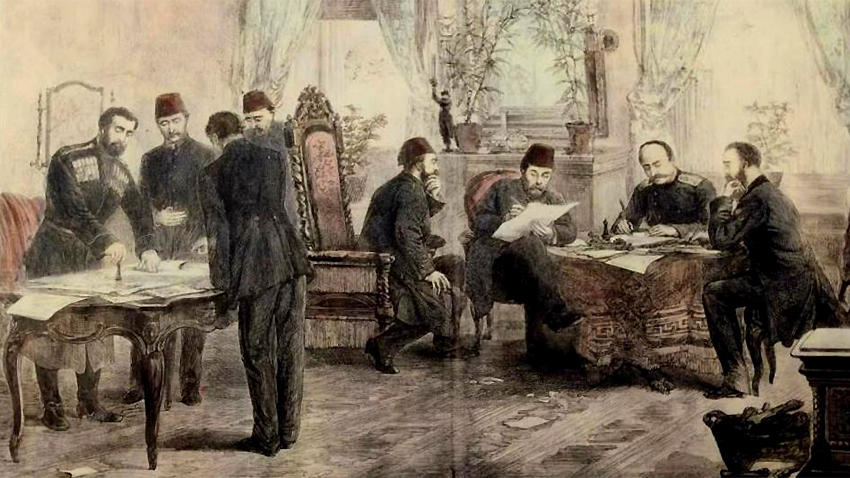
How did Bulgarians reach their freedom? The culmination of the Bulgarian liberation movement was the April Uprising of 1876. It was crushed, but the "Bulgarian Question" was already a hot topic in the world. Many prominent Europeans spoke publicly in defense of the Bulgarians: politicians such as William Gladstone and Otto von Bismarck, great writers like Victor Hugo, Dostoevsky, Oscar Wilde; scientists such as Darwin and Mendeleev were all among them. The free press managed to overturn the public opinion even in countries willing to support the Ottoman Empire because of geopolitical interests. The contributionsof American journalist Januarius McGahan, who wrote for the British newspaper Daily News and American New York Herald is particularly important.
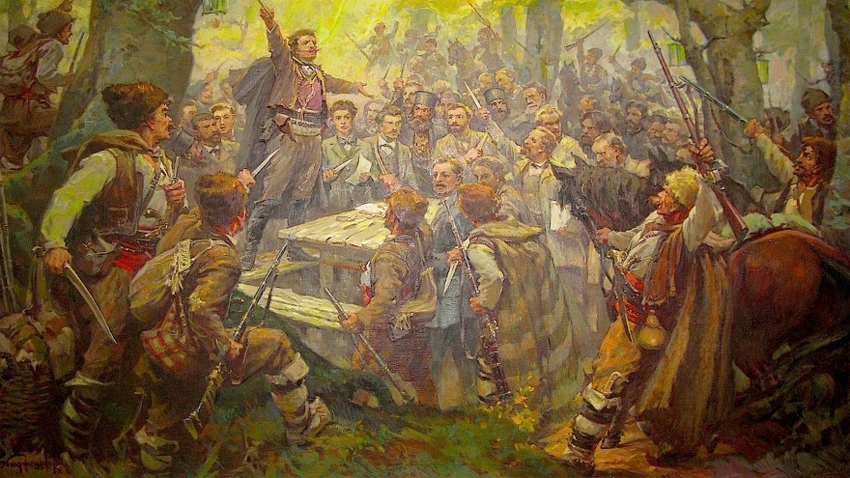
In the new Balkan crisis, Russia saw an opportunity to regain its position in Southeast Europe, lost after the failed Crimean war. Russian diplomacy held complex negotiations with the rest of the Great Powers, especially with Germany and Austria-Hungary. The neutrality of these Great Powers was secured at the cost of a number of compromises regarding the future of Southeastern Europe. On April 24, 1877 Russia declared war on the Ottoman Empire and immediately launched an offensive on the Caucasus Front. On June 27 the land operations in today's Bulgarian lands started near Svishtov.
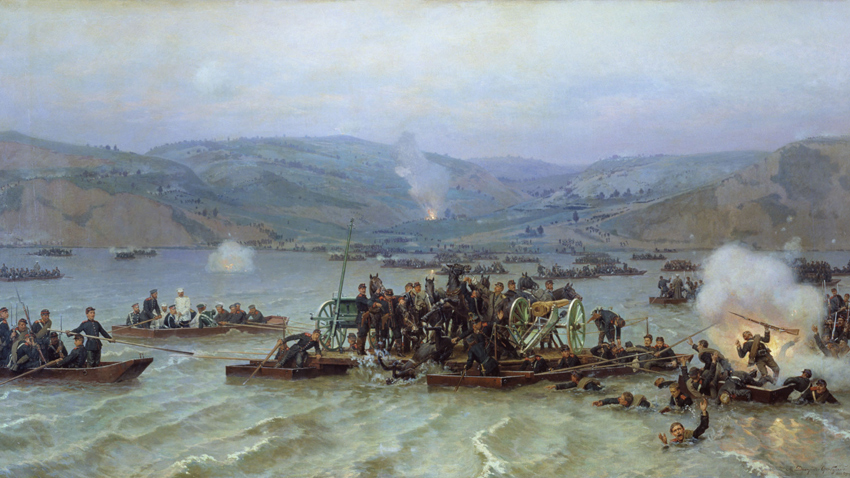
The modernized Ottoman army was a serious military force and the war turned out to be much longer, harder and bloody than originally expected in St. Petersburg. The Bulgarian people helped for achieving the final victory in many ways. For example, the Bulgarian volunteer formation Opalchenie, created by the Russian Command, participated in the most important and decisive battle - the heroic defense of the Shipka Pass in Stara Planina in August 1877. Suleiman Pasha's attack against this mountain pass was key in the Ottoman counter-offensive plan for pushing back the Russian army beyond the Danube. But in this battle Russians and Bulgarians won a historic victory.

Towards the end of 1877, after another historic victory - in Pleven, the Russian Supreme Command decided that it was politically important that the war be completed no later than the winter of 1878. That is how a general offensive to South Bulgaria was planned through Stara Mountain, which is icy and inaccessible in winter. Even German generals considered such an offensive to be impossible. But it was successful thanks to the help of tens of thousands of Bulgarians who helped the Russian army pass the mountain. The decisive battles south of the Balkan Mountains (Sofia, Shipka-Sheinovo and Plovdiv) led to a complete military victory and to the preliminary peace treaty signed on March 3rd.
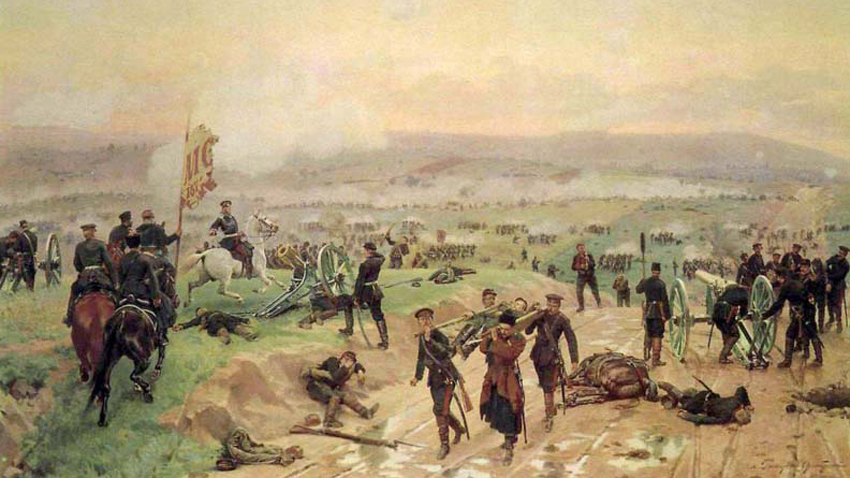
The final decisions were taken at the Berlin Congress of the Great Powers in June-July 1878. The results of this international meeting reflect some of the compromises reached before the war. Actual independence was given only to the Principality of Bulgaria (present-day northern Bulgaria and the Sofia region), which still formally remained vassal to the Sultan. Southern Bulgaria with center Plovdiv became an autonomous region in the Ottoman Empire. Under the rule of the Sultan remained other present-day Bulgarian lands: Pirin Macedonia, the Rhodope Mountains, Strandzha, as well as lands with predominant Bulgarian population back then like Vardar Macedonia and Aegean Thrace.
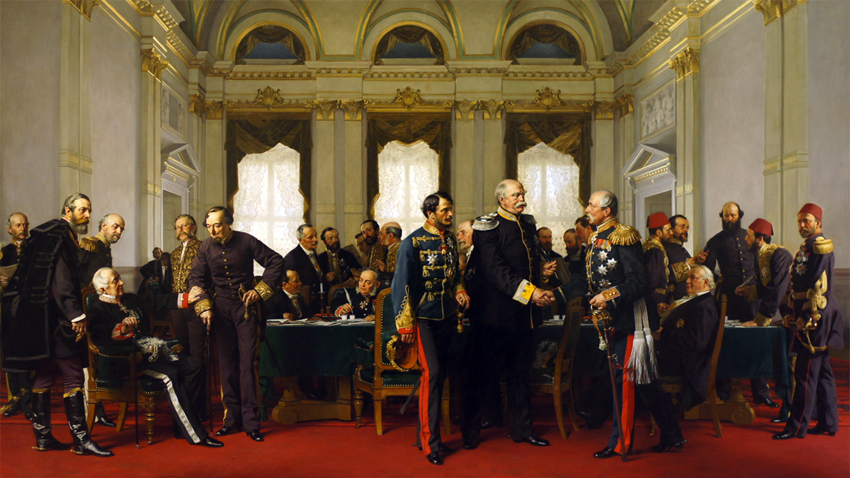
Frome then on the creation of Bulgaria in its present borders was a purely Bulgarian affair, the result of nearly 40 years of struggle. The first democratic constitution of the country, adopted in 1879, which marked the beginning of Bulgaria as a democratic European state, was also the work of Bulgarians.
English: Alexander Markov
Archaeologists have discovered a very rare and valuable glass bottle in a 2nd-century tomb in the southern necropolis of the Roman colony Deultum near the village of Debelt (Southeastern Bulgaria). What makes it unique is that it depicts the myth of..
The Days of Croatian Archaeological Heritage, which will last until 8 November, begin today at the National Archaeological Institute with Museum at the Bulgarian Academy of Sciences (NAIM-BAS) in Sofia. The event is organised by the Croatian Embassy in..
Today, 6 November, marks 104 years since the annexation of the Western Outlands in 1920. Traditionally Bulgarian territories in south-eastern Serbia and northern Macedonia were ceded to the Kingdom of Serbs, Croats and Slovenes in 1920 as a result of..
105 years ago, on November 27, 1919, a treaty was signed in the Parisian suburb of Neuilly-sur-Seine, officially ending Bulgaria's..

+359 2 9336 661
